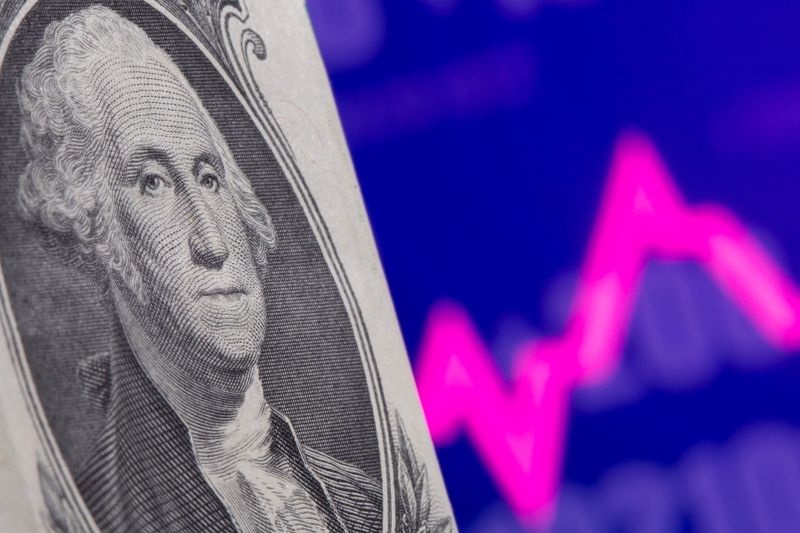 © Reuters
© Reuters
Investing.com -- Most Asian currencies fell on Friday amid persistent fears of an economic slowdown in China, while the dollar firmed after data showed that U.S. consumer inflation grew as expected in July.
Rising U.S. Treasury yields also pressured local currencies, while expectations that the Federal Reserve will keep interest rates higher for longer kept the dollar buoyant.
Data on Thursday showed that U.S. consumer price index (CPI) inflation grew as expected in July from the prior month. While the reading spurred bets that the Fed will keep rates on hold in September, it also saw markets trim their expectations for a rate cut this year, with rates expected to remain at 22-year highs.
This weighed on most risk-driven assets, with investors remaining wary of buying into Asian currencies amid a high U.S. rate outlook.
The Japanese yen was among the worst hit, sinking to a one-month low in overnight trade and steadying near the key 145 level on Friday. But a market holiday in the country kept trading volumes limited.
The rate-sensitive South Korean won shed 0.4%, while the Singapore dollar fell slightly after the island state downgraded its economic growth outlook for the year.
The Australian dollar was among the few gainers for the day, rising 0.2% as Reserve Bank Governor Philip Lowe warned that sticky inflation could invite more rate hikes by the bank.
Sentiment towards Asian markets was also hit by fresh concerns over China, following dismal inflation and trade data releases this week and increasing fears of a property market meltdown.
China property fears dent sentiment, but PBOC supports yuan
Country Garden Holdings (HK:2007), one of China’s biggest property developers, warned of a massive loss for the first half of 2023, amid worsening conditions in the sector.
The developer also said it had missed some dollar bond payments, with media reports suggesting that the firm was seeking debt restructuring.
A high-profile default bodes poorly for China’s already struggling property market, and could further damage a slowing economic recovery, given that the property market is a key growth engine for the country.
But the yuan rose 0.2% on Friday, aided by a series of strong midpoint fixes by the People’s Bank of China (PBOC) this week. The bank was also seen selling dollars to support the Chinese currency.
Indian rupee stronger after hawkish RBI, CPI in focus
The Indian rupee was also among the few outliers for the day, rising 0.2% after the Reserve Bank of India (RBI) kept interest rates steady, but flagged more policy tightening to curb high inflation.
The RBI warned that CPI inflation likely grew substantially in July, with a reading on the metric due later on Friday.
While the RBI said that the resurgence in inflation was likely to be temporary, it stood ready to roll out more policy tightening to curb sticky inflation.

